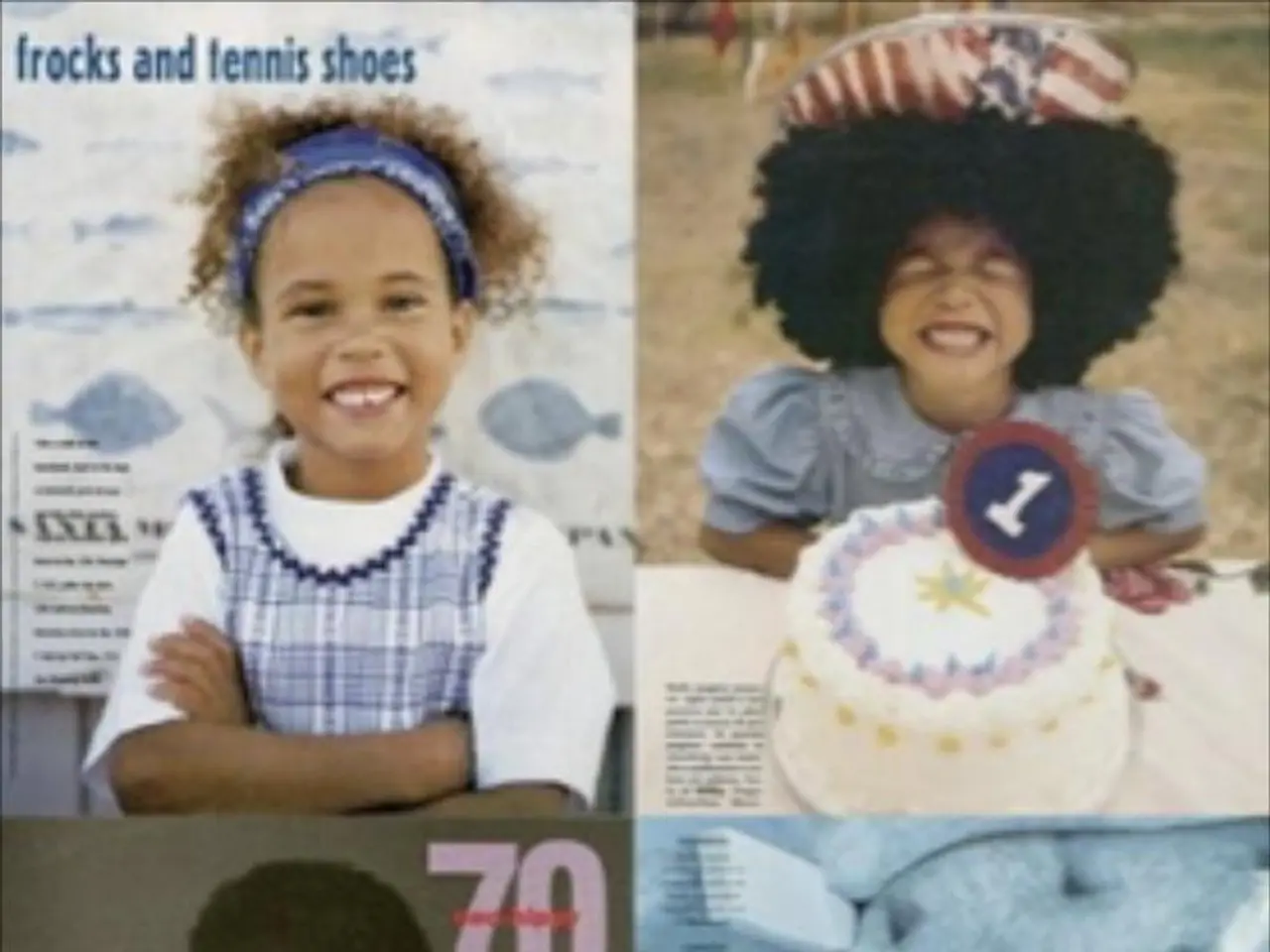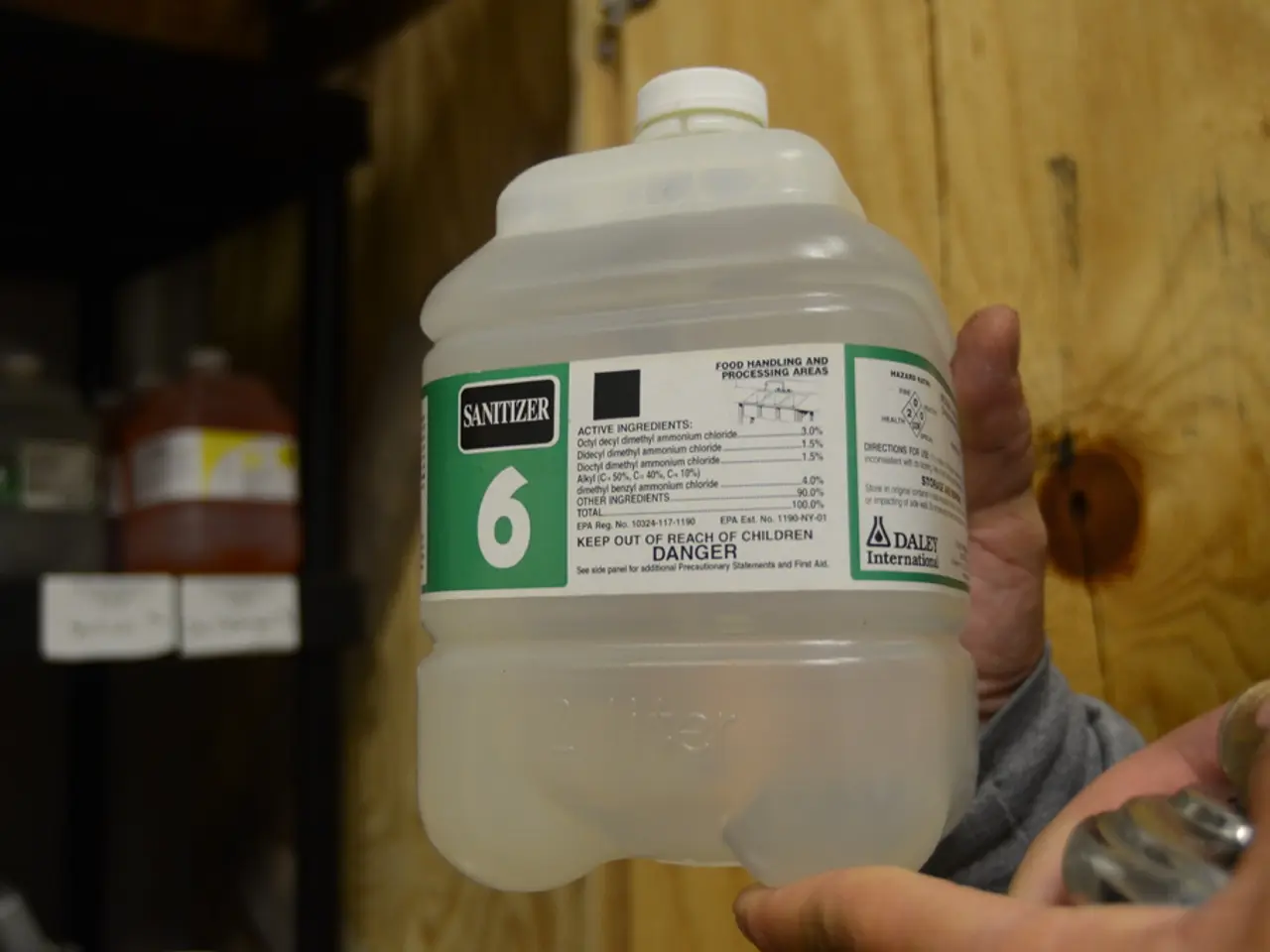Encouraging Self-Confidence in Kindergarten Children
==========================================================
In the journey of raising children, fostering a positive self-concept is crucial for their overall development. Here are some effective strategies that parents can employ, focusing on acceptance, encouragement, and fostering independence.
Expressing Unconditional Love
Showing children that they are loved unconditionally, regardless of successes or failures, is a key approach. This helps children develop a healthy self-worth and resilience.
Setting Realistic Goals
Setting attainable goals encourages children to embrace challenges and build resilience. It's essential to allow them the freedom to make their own choices, which helps foster autonomy and confidence.
Praise Effort, Not Just Outcomes
Using specific, unsolicited compliments that praise effort and process rather than just outcomes helps children internalize confidence. This approach empowers them to believe in their abilities and persevere through challenges.
Encouraging Trial and Error
Encouraging trial and error without immediate correction allows children to trust their abilities and learn from mistakes. This approach fosters independence and resilience.
Positive Self-Affirmations
Regular practice of positive self-affirmations, either spoken aloud, silently, or in writing, empowers children to generate their own positive emotions and build self-belief.
Supporting Social Interactions
Supporting social interactions and cooperative play further enhances self-perception and emotional growth. This helps children develop a sense of belonging and acceptance.
Active Listening and Encouragement
Spending quality time listening to children’s thoughts, focusing on their strengths, and encouraging decision-making also contribute to a robust positive self-concept.
Fun Activities for Self-Expression
The primary idea is to have fun together. If your child is not interested in an activity, save it for another time. Instead, you and your child can explore together ideas for an alternate activity. Two engaging activities for self-expression include the "This Is Me" and "My Timeline" activities.
The "This Is Me" Activity
Have your child lie down on a large sheet of paper. Using a marker, trace the outline of your child's body on the paper. You and your child can then cut out the silhouette you have drawn. Next, your child may like to use the crayons, markers, or paint to draw his or her face on the head and to color in clothes.
Materials Needed for "This Is Me" Activity
- A large (child-sized!) sheet of paper (or newspapers taped together)
- Crayons, markers, or nontoxic paint
- Children's scissors
The "My Timeline" Activity
Together you and your child can create his or her personal timeline. Get out a wide selection of pictures of your child at various ages. Let your child pick out ones he or she would like to put on the timeline. Attach the pictures to poster board, beginning with the youngest picture and continuing in chronological order. Have your child describe the pictures, while you write captions beneath them, using his or her words.
Materials Needed for "My Timeline" Activity
- Poster board
- Photographs of your child
- Tape or glue
- Markers
Showing Your Child You Value Them
The best way to show your child how much you value who he or she is, is using your child's interests and ideas as the basis for an activity.
These strategies, backed by research and expert advice, promote children’s sense of being accepted, capable, and effective—key components of a healthy self-concept. By implementing these strategies, parents can help their children grow into confident, resilient, and emotionally healthy individuals.
References: - Brooks, R. & Goldstein, S. (2007). Raising a Self-Disciplined Child: Help your child become more responsible, confident, and resilient. New York: McGraw Hill. - Van Horn, J. (April 1994). Self-concept is important (Part I and II). Penpages. Edited by: Rose Fisher Merkowitz, Extension Educator-Family and Consumer Sciences, Highland County; Kathy L. Jelley, Extension Educator-Family and Consumer Sciences, Brown County; and Scott Scheer, Professor and Extension Specialist-Human and Community Resource Development and 4-H Youth Development, The Ohio State University.
- To nurture a child's overall development and foster a positive self-concept, parents can engage in "home-and-garden" activities like the "This Is Me" and "My Timeline" activities, which promote self-expression and personal growth.
- In addition to academic pursuits, focusing on cultivating a healthy self-concept through education-and-self-development activities such as positive self-affirmations and expressing unconditional love can significantly contribute to a child's lifetime "lifestyle" of emotional well-being and resilience.




